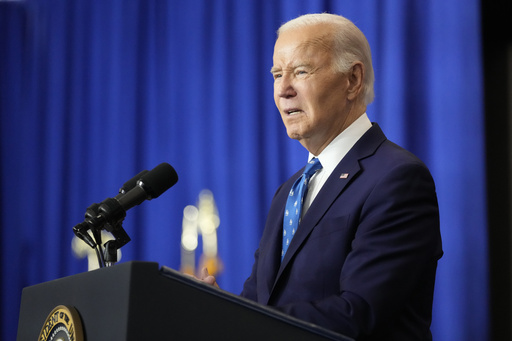In a significant move, President Joe Biden vetoed a bipartisan bill on Monday aimed at establishing 66 federal district judgeships, citing concerns over the rushed process by the House which left several important issues unresolved regarding these lifetime appointments.
The proposed legislation was designed to gradually introduce new trial court judges over a span of more than ten years. This framework would allow for the appointment of judges by three different presidential administrations and six Congresses, ensuring that neither political party would gain an unfair edge in influencing the federal judiciary.
The Senate, under Democratic control, passed the measure with unanimous support back in August. However, the Republican-led House brought it to vote only after Donald Trump’s election to a second term in November, raising questions about the integrity of the timing and intent behind the bill.
At that time, the White House indicated that President Biden would likely veto the legislation. In his statement, Biden pointed out that the House’s expedited actions overlooked critical considerations related to the allocation of new judgeships. He emphasized that neither chamber had sufficiently researched how the workload of current senior status judges and magistrate judges influences the need for additional judgeships.
The President remarked, “The efficient and effective administration of justice requires that these questions about need and allocation be further studied and answered before we create permanent judgeships for life-tenured judges.” He also noted that the bill would introduce judgeships in states where sitting senators have not yet filled existing judicial vacancies, suggesting that the motivations behind the bill may not genuinely concern judicial efficiency or caseload management.
As a result, Biden declared his decision to veto the bill, effectively ending its progress in the current congressional session. In order to override the veto, a two-thirds majority would be necessary in both the House and Senate, a feat made unlikely given the House’s previous vote count.
Legal associations representing judges and attorneys had previously urged Congress to support the bill, asserting that the current shortage of federal judges has led to significant delays in case resolutions and raised severe concerns about access to justice for the public.
Reacting to the veto, Senator Todd Young, a Republican from Indiana, criticized the decision as “misguided,” suggesting it reflects a growing dissatisfaction among Americans regarding President Biden’s leadership. He pointed out Biden’s recent pardon of his son Hunter, contrasting it with the needs of ordinary citizens who are awaiting justice in a timely manner.
“The President is more enthusiastic about using his office to provide relief to his family members who received due process than he is about giving relief to the millions of regular Americans who are waiting years for their due process,” Young asserted, summarizing his view of Biden’s legacy as one of favoritism rather than justice for all.



